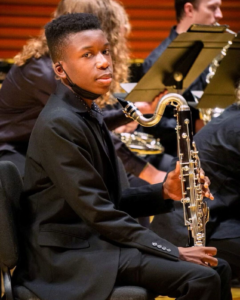The Ad Hoc Truth and Reconciliation Commission is working to heal the generational divide within Iowa City’s Black community through restorative justice circles.
In the past year, the Iowa City Ad Hoc Truth and Reconciliation Commission has faced a series of commissioner resignations, a lack of funding from the Iowa City City Council, and pressure from some community members, as well as Mayor Bruce Teague, to disband and restart.
Still, the city’s newest commission is working on finding ways to further its mission. To progress toward healing, the commission plans to participate in restorative justice practices such as Circles, led by community facilitators.
Restorative circles are a practice of bringing together different parties in a conflict — those who have acted, those impacted by those actions, and the broader community — to an open discussion.
In the wake of the murder of George Floyd by Minneapolis police and protests across the nation,including in Iowa City, the city established the Truth and Reconciliation Commission in September 2020, one of the 17 points agreed upon by the city and the Iowa Freedom Riders, the group leading the protest movement in Iowa City.
The council charged the commission with fact-finding, truth-telling, and reconciliation of injustices within Iowa City and making policy recommendations to the Iowa City City Council by May 1, 2022.
With pushback from some community organizations like the Black Voices Project and older Black Iowa City residents, several Truth and Reconciliation commissioners and community members say a long-time generational divide has become increasingly apparent between the commission –– whose members tend to be younger –– and older members of the city’s Black community.
In past City Council meetings, some community members called for the disbanding and reset of the Truth and Reconciliation Commission.
This divide became one of the many reasons former Truth and Reconciliation commissioner and Iowa Freedom Riders founder Raneem Hamad resigned from the commission. Hamad said in a September interview with The Daily Iowan that the biggest shock for her was the treatment young activists like herself received from older Black leaders.
She said it was difficult to handle the “patronizing energy” coming from both city councilors and older Black community activists.
“I was consistently dealing with this, like ‘Your ideas aren’t good because you don’t know anything. You don’t know how the government works or how the city works,’” Hamad said to the DI. “We’ve lived in Iowa City all our lives, we grew up in this system, we know how sh— happens inside day in and day out.”
Hamad said she is happy she resigned after issues arose between the commission and the council and among the commissioners themselves.
“Just having to constantly deal with people telling you that you don’t know enough, when you literally have lived experiences to base off of your ideas, was really hard,” she said.
Truth and Reconciliation Commission chair Mohamed Traore said much of this divide stems from prior public comments made early in the year, as well as commissioners not feeling generally respected or on the same tier on the commission.
“The divide is just another one of those things where you’re always going to have pushback from the community when you’re trying something new and you’re trying to make changes,” Traore said. “You’re always going to have groups that aren’t going to completely agree with you, so you need to be willing to put in that extra time and work.”
To address this divide, Traore said the commission is working to attend more community events and contact groups in disagreement, so they know their opinions are valued.
Another method being used to encourage healing is the commission’s participation in a program called Circles, where the community participates in restorative justice circles facilitated by Iowa City residents Angie Jordan, Annie Tucker,and V Fixmer-Oraiz.
“The power of Circles is that people can get clearer, can feel more connected,” said Tucker, who serves as director of Mediation Services of Eastern Iowa.
Circles work by having a “circle keeper” ask the circle a question — such as “tell me about a person who has made a positive difference in your life” — and a talking piece is passed around the circle as members answer the question or pass, Tucker said.
Jordan, CEO, founder, and director of Banjo Knits Empowerment, said Circles provide a foundation that may not have been provided to the Truth and Reconciliation Commission when it was first established, allowing commissioners and the community the opportunity to connect.
“It’s an opportunity for the TRC to come together around practicing what their actual charge is: truth and reconciliation,” Jordan said.
Circles are offered to any Truth and Reconciliation Commission member and other organizations in the Iowa City area and are held in partnership with Dream City, Jordan said.
Truth and Reconciliation Commission Vice Chair Amel Ali said public record rules limit the participation of the entire commission at one time, or else the event would have to be recognized as a public meeting.
“They can be used in a way to remedy situations where people aren’t necessarily in agreement or have been in bigger arguments or feel like they’ve been wronged by one person or another and hoping to use those as a tool for rectifying situations where people feel like they have a rift between us [two],” Traore said.
After a year of setbacks, including being faced with a temporary suspension in March, Ali said the commission has experienced various successes, including in its advocacy for the Excluded Workers Fund, as well as recently hearing from local high schoolers experiencing racism in schools.
“As long as we can continue to work on the relationship with the older generation and city council as well, that’s also really important,” Ali said. “I think we’ll be able to succeed in our mandate.”
Rachel Schilke contributed to this report.




